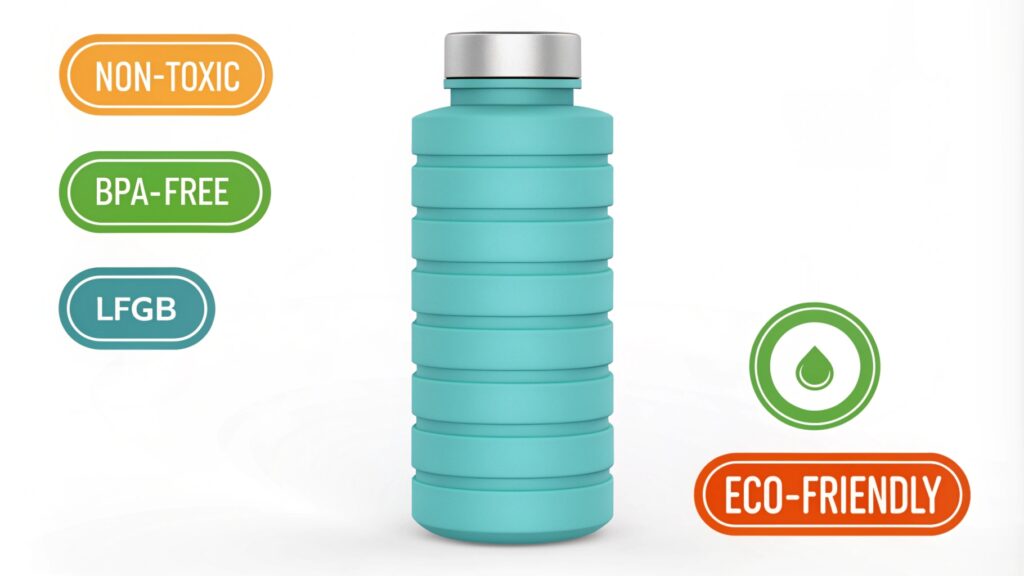
Are you wondering if silicone water bottles are safe? With so many materials like plastic, stainless steel, and glass to choose from, it's important to know why silicone stands out. Let’s break it down for you.
Yes, silicone water bottles are safe for drinking water. They are non-toxic, BPA-free, eco-friendly, and meet international safety standards like FDA and LFGB.
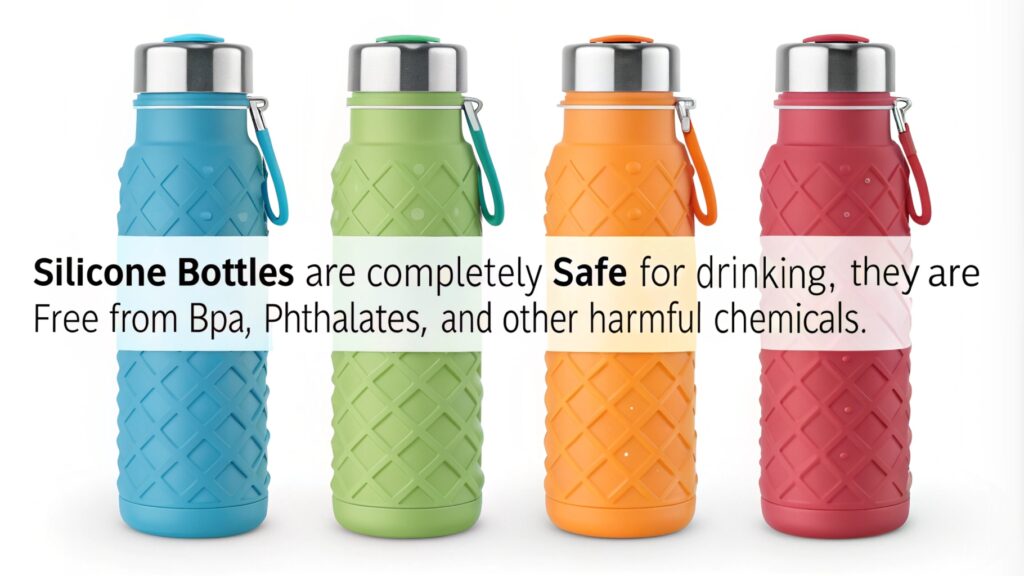
But safety is just one factor. If you’re looking for the healthiest and most practical water bottle, read on as we answer all the key questions about silicone bottles.
Is it safe to drink from silicone water bottles?
Silicone water bottles are becoming a popular alternative to traditional plastic and stainless steel bottles.
Yes, silicone bottles are completely safe for drinking. They are free from BPA, phthalates, and other harmful chemicals.
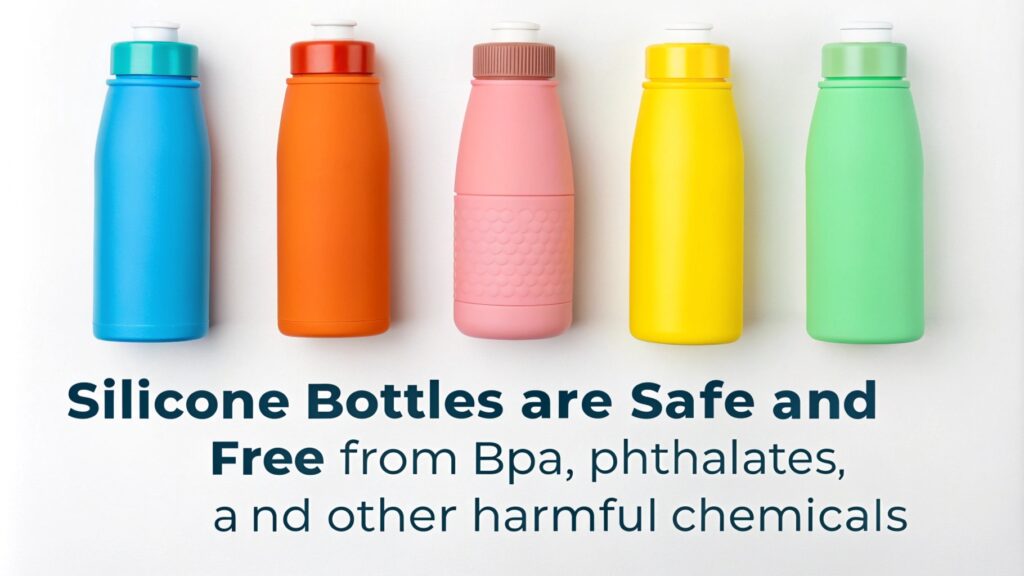
Why are silicone bottles considered safe?
Silicone used for water bottles is food-grade, non-toxic, and chemically stable. It does not release harmful substances under normal use, even when exposed to heat or cold. These bottles comply with safety certifications like:
- FDA: U.S. food-grade standards
- LFGB: German food contact safety standards
Silicone vs Plastic Safety
| Feature | Silicone Water Bottles | Plastic Water Bottles |
|---|---|---|
| BPA-Free | Yes | Not always |
| Chemical Leaching | No | Can leach at high temperatures |
| Environmental Impact | Reusable and eco-friendly | Often single-use and wasteful |
Silicone bottles combine safety with sustainability, which makes them a reliable choice.
What are the disadvantages of silicone bottles?
While silicone bottles are safe, they do have a few downsides to consider.
Silicone bottles may retain odors, stain easily, and are less durable compared to metal bottles.
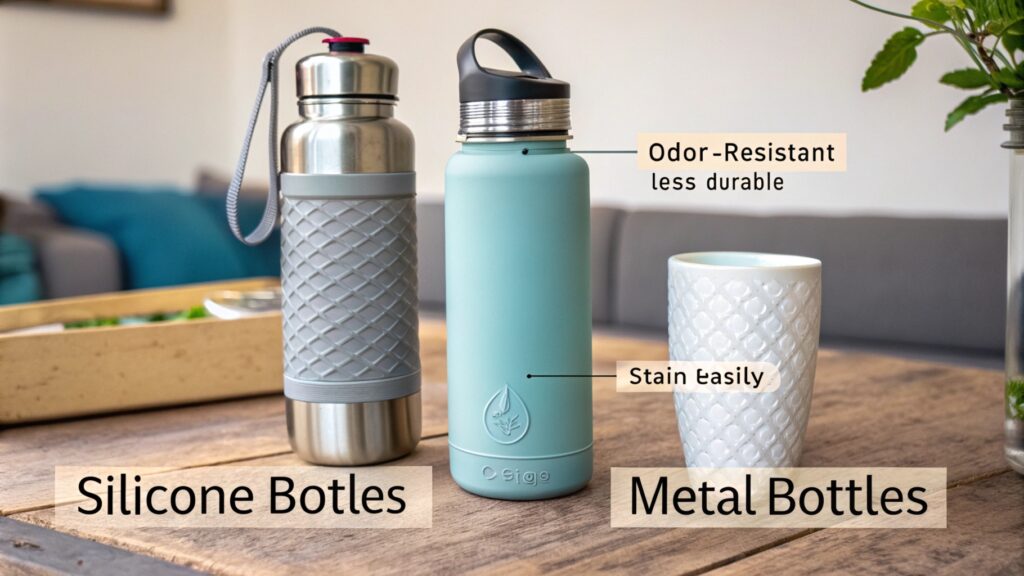
1. Odor Retention
If silicone bottles are not cleaned properly, they can hold onto smells, especially after holding flavored drinks or juices.
How to fix it: Use baking soda and vinegar to thoroughly clean the bottle and remove any odor.
2. Prone to Cuts and Scratches
Compared to stainless steel, silicone is softer and more prone to cuts or damage. This reduces its lifespan if handled roughly.
Tip: Avoid sharp objects or rough surfaces when using silicone bottles.
3. Cleaning Challenges
Silicone bottles with folds or collapsible designs can be harder to clean. Mold or dirt can build up in creases if not dried properly.
Is silicone safe for drinking water?
Food safety is a top concern for water bottle users.
Yes, silicone is safe for drinking water because it is non-reactive, durable, and free from harmful substances like BPA.
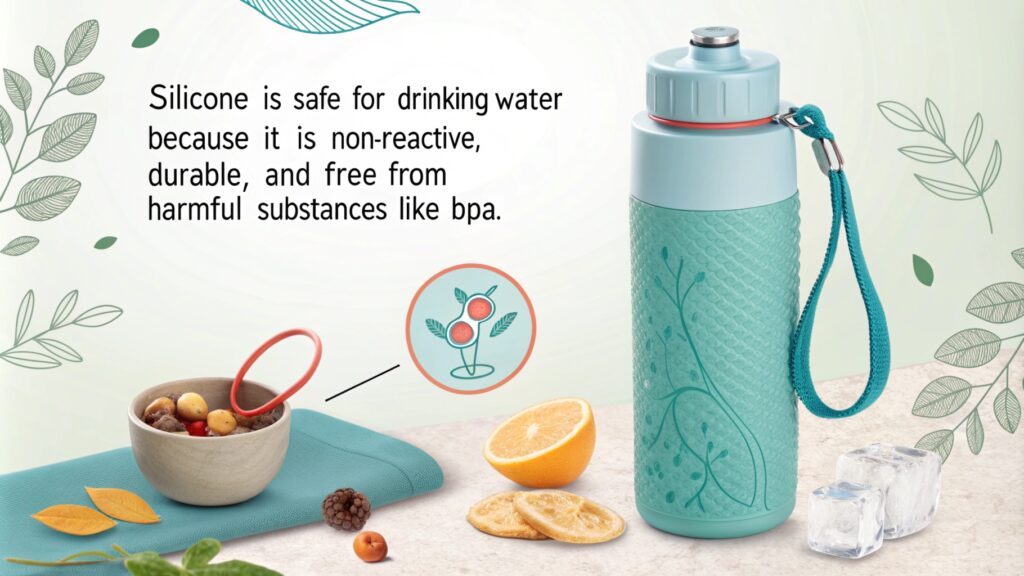
How does silicone stay safe?
Silicone is made from natural elements like silicon and oxygen, forming a chemically stable material. Unlike some plastics, it does not break down into microplastics or leach harmful chemicals into water.
Heat and Cold Resistance
Silicone water bottles can withstand temperatures ranging from -40°C to 220°C. Whether you pour boiling water or ice-cold water into it, the material remains safe and stable.
What is the safest water bottle to drink from?
Choosing the safest bottle depends on material and quality.
Stainless steel, glass, and silicone water bottles are the safest options for drinking water.
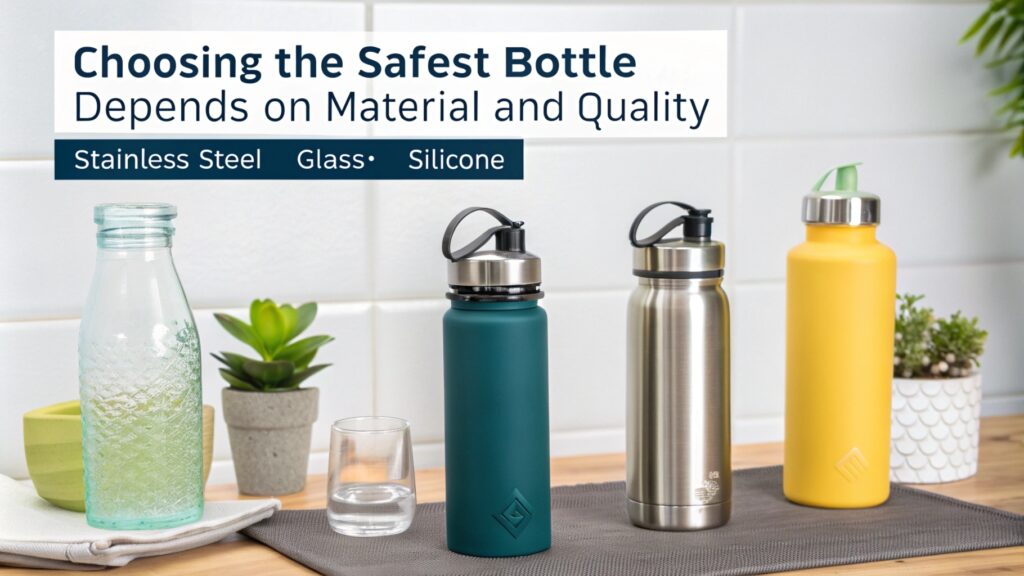
Material Comparison Table
| Bottle Type | Safety Level | Advantages |
|---|---|---|
| Stainless Steel | High | Durable, non-reactive, no chemicals |
| Silicone | High | Flexible, BPA-free, lightweight |
| Glass | High | Pure, non-leaching, eco-friendly |
Stainless steel is durable and reliable, while glass offers purity. Silicone combines safety with portability, making it ideal for travel.
Are silicone water bottles BPA-free?
BPA is a chemical often found in plastic, linked to hormone disruption.
Yes, silicone bottles are 100% BPA-free, making them safer than many plastic bottles.
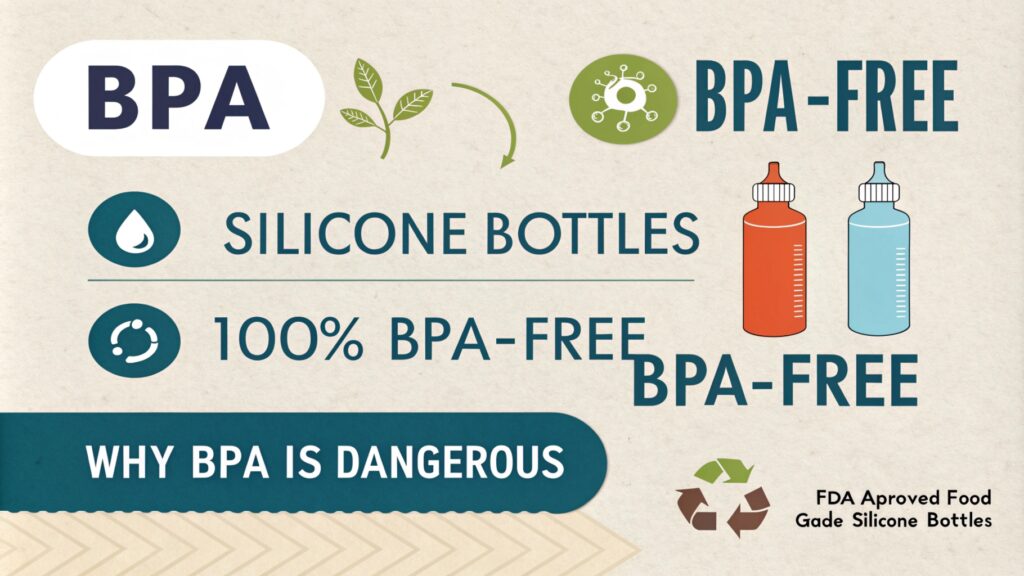
Why is BPA dangerous?
BPA can leach into water and affect hormone balance. Silicone is naturally BPA-free, providing peace of mind for health-conscious consumers.
BPA-Free Certification
Look for bottles that have certifications like FDA-approved food-grade silicone, ensuring they meet international safety standards.
Does silicone leach chemicals?
Chemical safety is critical for reusable bottles.
No, silicone does not leach chemicals, even when exposed to heat or cold.
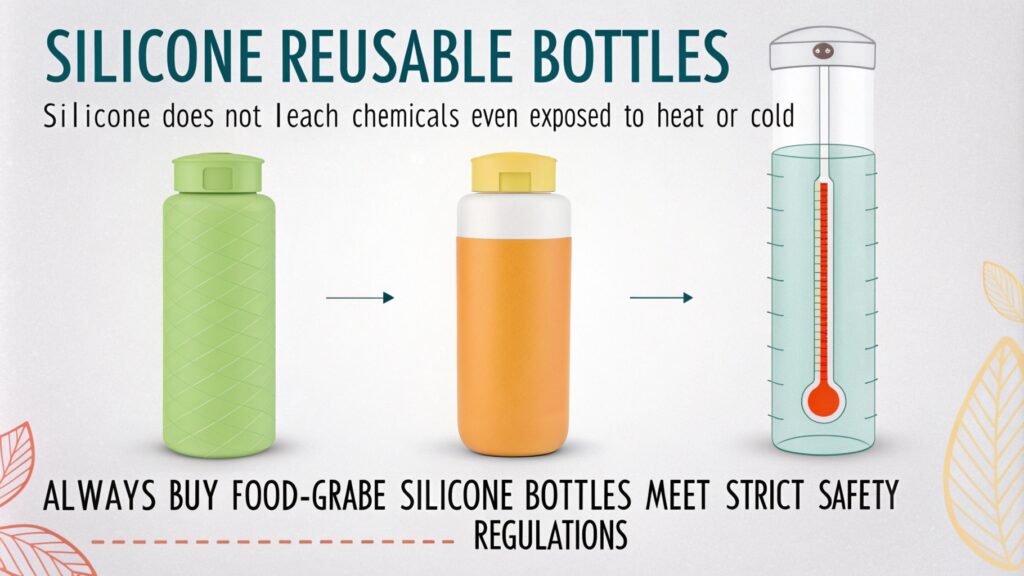
Stability Under Temperature
Silicone’s structure remains unchanged under extreme temperatures. Unlike plastic, it does not release harmful substances into liquids.
Tip: Always buy food-grade silicone bottles, as they meet strict safety regulations.
Can silicone cause health issues?
Health concerns are valid when choosing a water bottle.
No, silicone does not cause health issues. It is safe, non-toxic, and widely used for food and medical products.
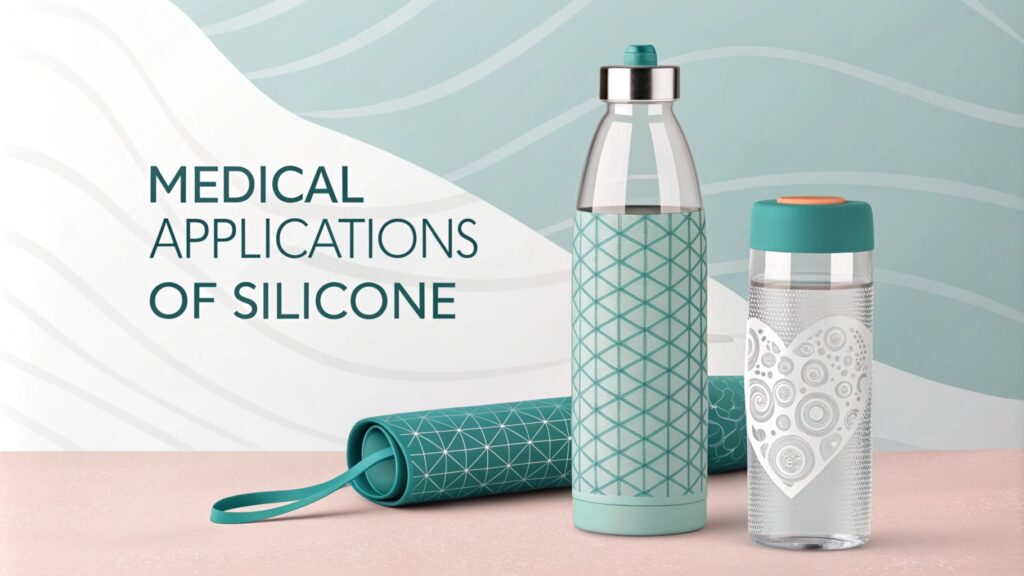
Medical Applications of Silicone
Silicone is commonly used in medical devices and baby products because of its non-toxic nature. This highlights its safety for human use.
Rare Allergies
While rare, some individuals may have silicone sensitivities. If you experience any discomfort, consult a doctor and switch to alternatives like stainless steel.
How often should silicone bottles be replaced?
Reusable bottles don’t last forever.
Silicone water bottles should be replaced every 1-2 years or sooner if damaged.
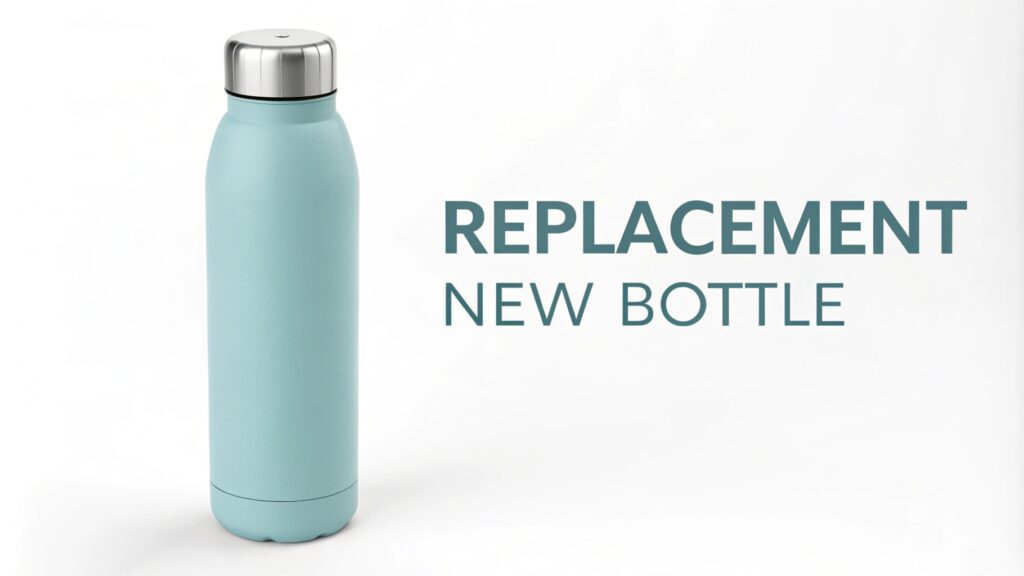
Signs You Need a Replacement
- Visible cuts, scratches, or cracks
- Persistent odors despite cleaning
- Mold or dirt buildup in creases
Regular replacement ensures hygiene and bottle safety.
Are silicone water bottles better than plastic?
Silicone offers significant advantages over plastic.
Yes, silicone bottles are better than plastic as they are non-toxic, durable, and eco-friendly.
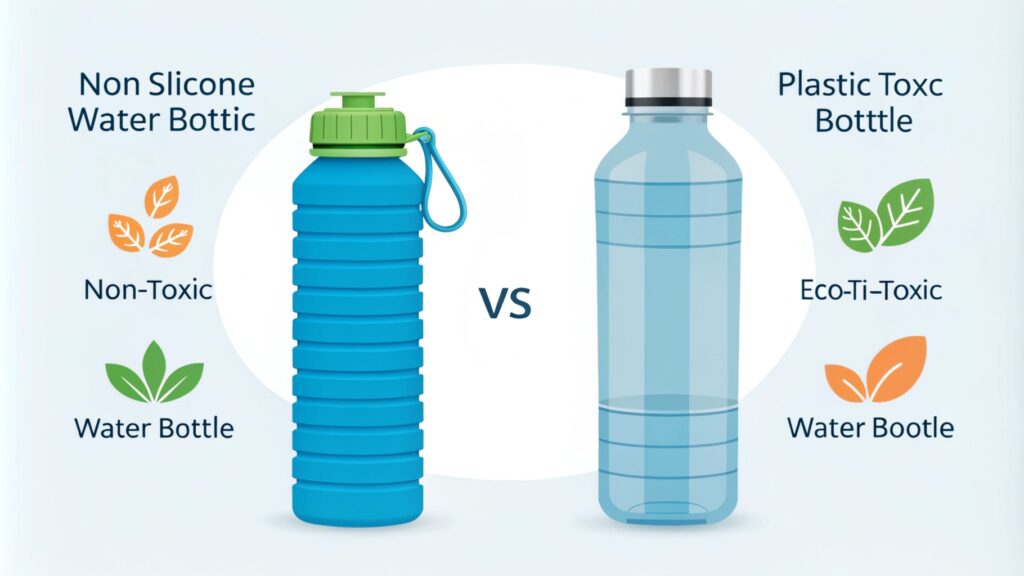
Environmental Impact
Unlike single-use plastics, silicone bottles are reusable and reduce waste. They last longer and don’t degrade into harmful microplastics.
Does silicone give off microplastics?
Microplastics have become a major environmental and health concern.
No, silicone does not release microplastics as it remains stable and does not break down over time.
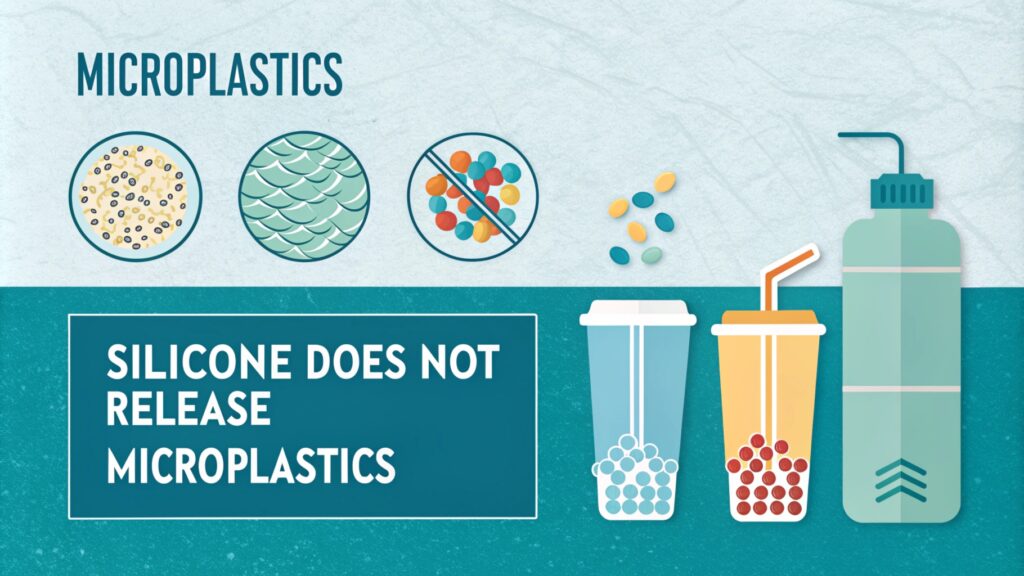
Why is this important?
Microplastics are tiny particles that can harm ecosystems and enter our food chain. Silicone provides a safer, longer-lasting alternative.
Conclusion
Silicone water bottles are safe, BPA-free, and an excellent eco-friendly alternative to plastic. They are perfect for daily use, combining safety, flexibility, and sustainability.
